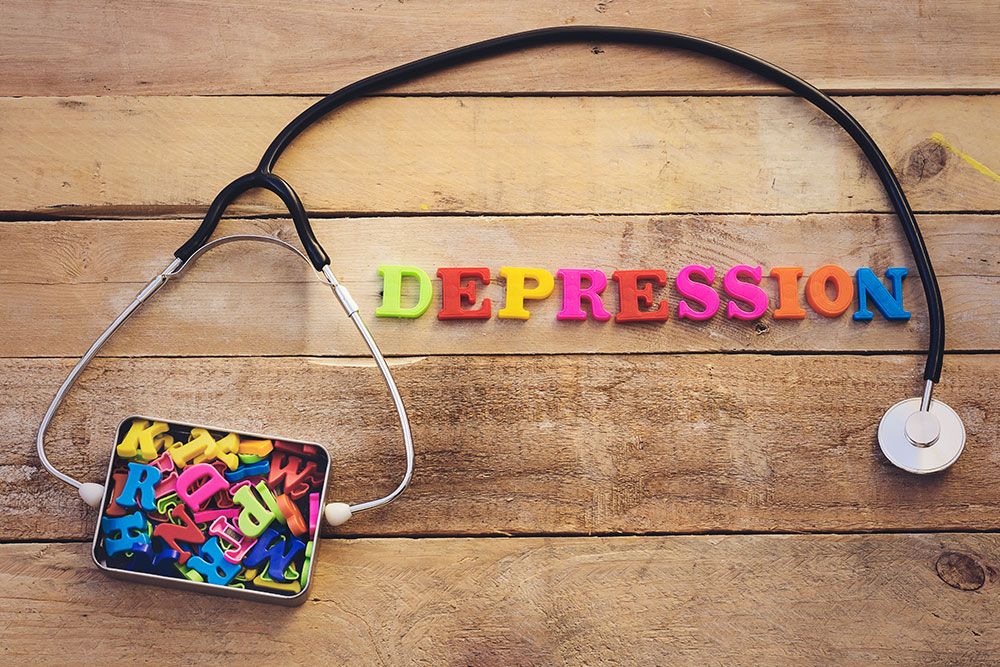By Catherine M, Editor
Updated on April 25, 2023
Published on April 25, 2023

Get latest news, updates, and trends on mental well-being

Depression is more than just a mental disorder. It is a constant feeling of hopelessness and sadness which might have developed due to a series of events. It could also be a result of imbalanced brain activity. There is a good evidence that people suffering from depression are more prone to medical illness. Their depression is more likely to relapse.
Let us take a look at ways that can help us prevent from suffering from depression.
Researchers have found out that people aged 14 to 35 are more prone to get depressed due to increased exposure to social media. it can be addictive, and the habit of sharing your daily life events with your friends and coworkers can trigger symptoms of depression. You can prevent social media taking the best of you by being spending your free time productively. Pick up a hobby or resume the one you left due to the excess use of those social media apps on your phone. Plan to meet your friends in person instead of knowing their whereabouts from social media.
This prevention technique is one of the best things you can do to improve your mental health. Exercise can help treat and prevent depression in several ways. It increases the body temperature, which calms down the nervous system and sets the rhythm of neurotransmitters. This eventually restores the chemical balance of the brain. The endorphins secreted while exercising can boost your mood. Staying active helps depression from getting relapsed. Exercises as simple as taking the stairs instead of elevator and stretching can help you prevent depression.
One of the key elements that can help you prevent depression is working on your relationships to have a strong support system when you are feeling down in the dumps. Research suggests that having an adequate social support from your loved ones and having a balanced social life can help you fight and prevent depression.
Too many choices can cause a significant stress which can result in depression. A perfect example of having too many choices is walking into a theme park and being overwhelmed at where to begin first. Hence, it is absolutely necessary to prioritize and take up tasks which you can easily accomplish. Failing to complete tasks that were originally too much to handle can also cause a great deal of stress.
Chronic stress is one of the major reasons that cause depression. Studies have shown that stress disturbs the firing of neurotransmitters in the brain which results in an altered brain activity, leading to depression. It is absolutely necessary to manage and cope with stress for optimal physical and mental health. Avoid committing to things you cannot see yourself accomplish. Practice meditation and mindfulness and learn to let go of things that are not under your control.
If you are under treatment for depression and have already experienced an episode of the same, then it is very unlikely that the disorder might relapse. Maintaining your treatment plan is very important. Keep a check on your treatment plan by continuing prescription medications and avoid stopping them abruptly. Never miss a “follow up” with your therapist and keep them updated about your treatment to avoid remission. Practice the strategies and coping mechanisms your therapist taught to prevent relapse or remission of the disorder.
This is one of the most important factors that can help you manage and prevent depression. Sleep is necessary for both, physical and mental health. People suffering from insomnia have tenfold risks of developing depression. You can get better sleep by not looking at screens of your gadgets, meditating, avoiding caffeine before going to bed, and having a comfortable mattress.
Studies have suggested that having a balanced diet plays a major role in preventing stress and depression. A high-fat diet can show similar effects of chronic stress, leading to depression. Obesity can result in low self-esteem, which can further take the form of depression. A national survey found that 43 percent of people suffering from depression are obese. An unhealthy diet deprives our body of vital nutrients that help in maintaining our physical and mental health. Hence it is necessary to reduce high-sugar and high-fat foods, eat balanced meals and lean protein with lots of fruits and vegetable. Eliminate processed foods from your diet and incorporate foods rich in omega-3 fatty acids.
If you are already under treatment for depression, these factors can help you prevent depression from getting relapsed. Consult your doctor if the symptoms get worse and follow the treatment plan provided by them carefully. Make sure that you take your medications on a timely basis and seek lifestyle changes as recommended by your therapist. Consult your own therapist before taking up any of these above-mentioned prevention techniques.